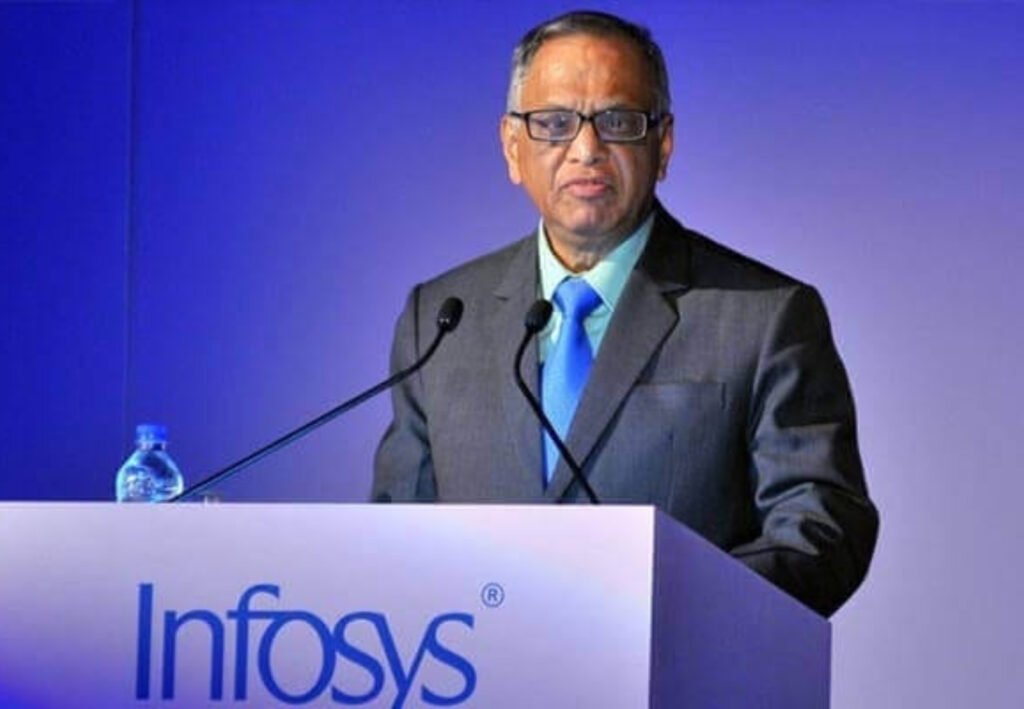Will You Work 70 Hours per week to Revive the Economy?
Narayana Murthy calls for revolution:
In this modern reality, where economic recuperation is a quintessential concern, the request arises: How much are lively adults organised to contribute to reestablishing the economy?
Lately, Narayana Murthy, the co-founder of Infosys and a recognisable figure in the Indian enterprise world, cautioned against a fundamental improvement in working hours. He advocates a 70-hour, drawn-out seven-day stretch of work for young professionals.
“Begin every action and conversation with this idea.”
"
In this article, we will study the idea of working longer hours and its implications for India’s economic future, as asked by Narayan Murthy.
The Call for Revolution!
Well, Narayana Murthy’s demand for a revolution in work hours is a response to the economic troubles seen by nations all over the planet, including India. The COVID pandemic has adversely impacted economies, inflicting enormous incidents.
In fact, according to RBI, the financial development in India slowed down essentially because of the COVID-19 pandemic. In the monetary year 2020-21, India’s GDP shrank by 6.6%, the biggest compression in the nation’s experience. Then the Indian economy rebounded in FY 21-22, with a GDP growth of 8.7%. Be that as it may, the growth rate is supposed to increase in FY-23 to around 7%.
It’s quite evident, there is a necessity for intentional undertakings:to recover, assist GDP, and position India as a standard goal leader.
But at what cost?
A Glimpse into History:
To recognise prolonged working hours, look back at the World War II conflict between Japan and China. These international locations went up in opposition to colossal troubles and used challenging work and development to improve their economic strength.
During the Second World War, Japan and China confronted immense difficulties and used hard work and industrialisation to improve their economies.
Japan invested in innovation and military development, while China underwent political changes and executed financial changes with escalated work. These endeavours added to their monetary development, yet frequently at extraordinary social expenses.
Might India observe comparably every time?
The Impact of Covid:
The pandemic shocked the world in unpredicted ways.
Lockdowns, constraints, mental health problems, and prosperity issues usually affect how we work and live as we aim for economic recovery; accountability matters.
Joblessness rates flooded, financial exchanges varied, and GDPs declined. Legislatures executed financial strategies to address these difficulties, stressing responsibility in the journey toward monetary recuperation.
But why must we look for economic goals?
A conclusive purpose is to assist India’s GDP and economic flip of events.
It requires confirmation, strength, and a whole lot of effort. Will working longer hours be the impulse for attaining this goal?
To bring India’s gross domestic product and financial circle back it requires assurance and significant exertion. While longer working hours contribute to this, it’s critical to maintain efficiency and a balance between productivity and work-life balance.
What's Next?
Narayana Murthy‘s proposition prompts essential conversations on adjusting work and prosperity.
Working 70 hours a week could support the economy, yet it gambles with burnout, influencing mental and physical well-being.
Supportable work hours, lined up with a balance between fun and serious activities, are significant for individual well-being and long-term financial development.
Balanced work hours and recreation advance prosperity.
For instance, more limited, effective work filled weeks support representative efficiency, decreasing pressure, and improving life quality.
Final Thoughts
The requirement of a 70-hour workweek is a bold idea that raises crucial questions about the feasibility of work in India’s future.
While it can also not be the predominant plan, it consists of the centrality of financial restoration and the prerequisites for innovative approaches.
The journey to a reestablished economic system will require complete undertakings, modified targeted perspectives, and eager readiness.
The choice to work longer hours is simple, and it is up to younger adults to determine their place in this proposed distress.
Subscribe to new post
The One Liner
Useful Links
Order Related Queries
Useful Links
Order Related Queries





